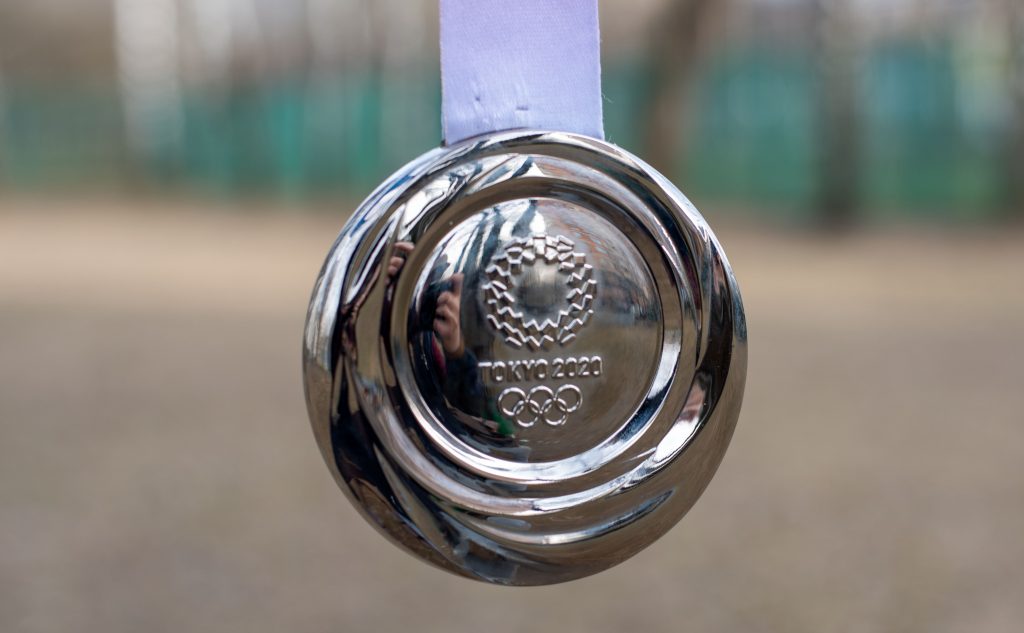This article first appeared as the cover story in the MARKETING Weekender, issue 299, on 23 July 2021
The ultimate case study: Olympic Games Tokyo 2020 powers through doubts and reproval
By the time you’re reading this, the opening ceremony for Olympic Games Tokyo 2021 – sorry, 2020 – would have aired just a little over 12 hours ago. Yet, diehard Olympic fans are feeling slightly disenchanted despite the fact the quadrennial event is finally taking place after over a year of unprecedented hurdles.
No fans, no sex, no fun
The grandeur of the Olympics has been hampered by cardboard beds, the reality that there will be no spectators for 97% of the Games and the fact that cheering on athletes will be done through a virtual screen. News organisations have also cheekingly labeled the situation as Tokyo hosting the “first no-fun olympics.”
According to Ciaran Lawler, a lecturer at the Tokyo Institute of Tourism, over the past few months, there has been a feeling of acceptance throughout the tourism sector. “The comparatively very slow vaccination rollout compared to the West is compounding these feelings,” he explained.
Less than two weeks ago, Tokyo entered its fourth COVID-19 state of emergency as the capital faced a rise in cases and the more contagious Delta variant. Just eight days ago, it recorded 1,308 cases, the city’s highest daily number since January. According to the International Olympic Committee (IOC), as of 21 July, a total of 91 Covid cases linked to the Olympics had been recorded since 1 July.
While these numbers may seem like just another set of COVID-19 data, it is in fact important context for how the Japanese public has been feeling about the Games.

What was supposed to be a symbol of recovery is causing many Japanese feelings of worry as the country is still working towards lowering the number of COVID-19 infections.
According to the New York Times Tokyo bureau chief, Motoko Rich, less than 10 percent of the population is vaccinated and in polls, about 85 percent of people say they fear that the Olympics will cause a rebound of the virus in Japan.
“I think there is going to be a certain proportion of the public, both in Japan and outside, who will definitely think that this was a colossal waste of energy and money,” Motoko said. “But in fairness, I don’t think we should discount what the Olympics mean to a certain component of the public that loves them and (there is this) sense of ‘international coming together’, the national pride of any country for the medals that it wins, and for the athletes themselves to be able to put themselves in this competition that they’ve worked all their lives for. All of that will still be present, but I think it will have been tainted by all that has come before.”
So, does the sense of discontentment for the general Japanese public impact the plans of a multibillion dollar committee?
Brands avoiding damage by association
What is the role of brands in the Olympics if not to reach out to its fans? Earlier this week, Toyota, one of the event’s key sponsors and one of Japan’s most influential companies, announced that it will be cancelling all Olympic-related advertising in Japan.

This was followed by two other key Japanese sponsors, Nippon Telegraph & Telephone Corp. and NEC Corp.
According to the Wall Street Journal, Nippon Telegraph & Telephone Corp. had even planned to show off its augmented-reality technology so spectators could watch a boat race as if they were on the water near the competitors.
Asahi Group Holdings on the other hand may not have pulled out of the Games but when the Group signed to be one of the 15 Tokyo 2020 Gold Partners – which is the most expensive tier of sponsorship – it certainly didn’t expect the ‘drinking’ aspect of its marketing campaign to be removed.
Instead, according to a statement released by the Group, “it was working on promoting its products to people watching the Olympics at home and elsewhere.”
For some, the show must go on
It’s of course no surprise that especially Japanese brands would want to distance themselves from any connection to the Games given the sentiment on the ground towards it.
But for other brands who are continuing their Olympic 2020 advertising plans, do their investments risk turning flat?
“If a brand was relying upon their ability to activate in the host city for over 16 days or even an expanded period post-Games, they probably didn’t make the right investment,” said Woody Thompson, the Executive Vice President for sports-marketing firm, Octagon. “Yet sponsors are still lured to the Olympics, largely because it allows them to use the Olympic logo in their advertising and product labels (and) they also are able to capitalize on the goodwill and patriotism engendered by athletes setting records and winning medals.”
An article by the New York Times titled ‘Skipping the Olympics Is ‘Not an Option’ for Many Advertisers’, explains how in the United States, Olympic-related marketing plans are mostly moving ahead.
While the author did not bother contextualising this with the crucially different vaccination rate between Japan and the US, she does however explain that some of these brands have simply invested way too much at this point.
“For NBCUniversal, which has paid billions of dollars for the exclusive rights to broadcast the Olympics in the United States through 2032, the event is a crucial source of revenue,” the article states.
Similarly, US beer company, Michelob Ultra even teamed up with sprint legend, Usain Bolt, for its Olympic ad.
Another sponsor, Visa, on the other hand, has stated that while the company’s commercial will be broadcasted during the opening ceremony, it will not hold promotional gatherings and client meetings in Tokyo and will not send any senior executives.
Pivoting focus
Certain brands who may have finalised the Olympic ad prior to March last year, have had to scrap the whole idea and start from scratch to avoid being irrelevant or worse, tone deaf.
However, adversity, especially unprecedented adversity, in itself provides a whole host of advertising opportunities.
“A year ago, the idea of a brand activating in an international way like the Olympics, at an event where historically, the stories are the individual athletes would really come to light, I would have been very bearish,” said Marc Beckman, the CEO and founder of advertising agency, DMA United. “Now I think it’s the opposite; the spirit of community coming together to overcome obstacles is there, in storytelling.”
Whether or not brands will see green for their investment in the 2020 Olympic, depends on the perseverance of the consumers’ enthusiasm despite the “no-fun” elements. All brands can do is have hope that some consumer behaviours have in fact remained intact since 2016.
MARKETING Magazine is not responsible for the content of external sites.









